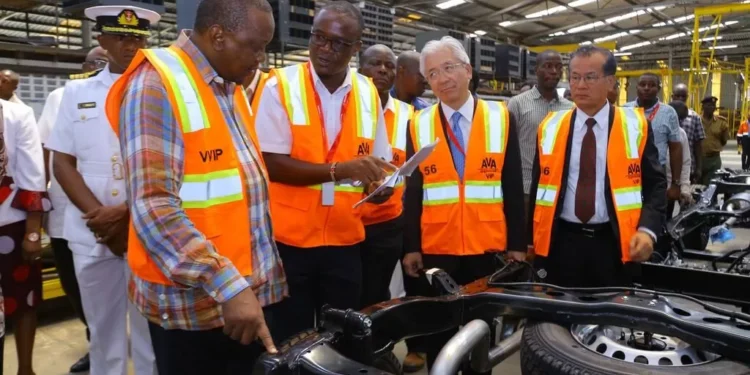Explore the overwhelming prevalence of imported second-hand vehicles in Kenya, constituting 85 percent of car purchases in 2017. Delve into the economic impact, with an estimated annual expenditure of 60 billion shillings on foreign exchange.
A Move Towards Local Manufacturing
Examine the government’s draft policy, revealing a strategic initiative to systematically reduce the market share of used vehicles and parts, aiming to replace them with new products manufactured or assembled within Kenya. Understand the motivation behind this shift and the potential benefits for the economy.
Peugeot and Volkswagen’s Return
Highlight the re-entry of renowned automakers Peugeot and Volkswagen into Kenya, with Peugeot restarting operations in 2017 after a 15-year hiatus. Explore the impact of these comebacks on local manufacturing and the broader automotive market.
Challenges in the New Car Market: Numbers and Key Players
Analyze the challenges faced by the new car market in Kenya, characterized by relatively low sales numbers. Provide insights into the market dynamics with data indicating that only 14,353 new cars were sold in the previous year. Identify key players dominating the sales landscape, such as Isuzu East Africa and Toyota East Africa.
Government Incentives: Fostering Local Car Assembly
Explore the proposed incentives outlined in the draft policy to encourage local car assembly. Discuss the financial benefits, including zero import and excise duties, along with a 50 percent corporate tax rate discount, to attract and support local car manufacturing companies.
Exemptions for Affordable Options: Engine Capacity and Age Limit
Detail exemptions within the new policy specify that vehicles with an engine capacity of 1500 cubic centimeters and below will be exempt from the proposed three-year age limit. Discuss the government’s strategy to ensure specific vehicle models remain affordable for first-time buyers.
Industry Voices: Positive Responses from Executives
Present the reactions from industry executives, with Rita Kavashe, head of Isuzu East Africa, expressing optimism about the proposed policy. Discuss the potential impact on investor confidence and the long-term sustainability of the automotive sector in Kenya.
Future Outlook:
Summarize the significance of the government’s policy shift and its potential to reshape Kenya’s automotive landscape. Discuss the anticipated positive outcomes for investors, manufacturers, and consumers alike as the country takes steps toward a more robust and self-sufficient automotive industry.
Original Article: https://www.reuters.com/article/idUSL8N1ZN3Z2/




